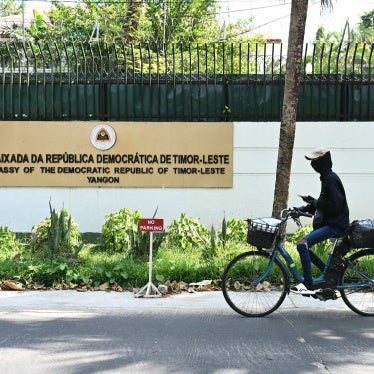Excellencies,
Four years after the Independent Expert Review (IER) report was published, thanks to the steady stewardship of the Review Mechanism, much has been accomplished. But efforts to strengthen the International Criminal Court’s delivery of justice – which was the main goal of this exercise – should remain on the court’s agenda, in partnership with the Assembly of States Parties and civil society.
As noted by many today, the IER provided a sobering assessment of the workplace culture at the court and made recommendations to improve it, including to address gaps in internal grievance procedures. As discussions move from the Review Mechanism to the Bureau’s working groups, we urge states parties to swiftly advance the implementation of these recommendations and, overall, continue efforts to improve workplace culture at the court.
Strengthening the court’s delivery of justice should also focus on state party responsibilities. States parties have grappled with certain IER recommendations that bear on their roles and made important advancements. For example, recommendation 169 yielded renewed discussions and attention on the need for states parties to defend the court from politicized threats and attacks, a topic of particular relevance now as the court faces possible new sanctions from the US government.
But there is a need to go further. For example, the IER made a number of recommendations aimed at strengthening cooperation. Among those were the designation of a focal point for arrests within the Assembly and the establishment of a rewards program. While these recommendations were assessed positively, to our knowledge, no progress has been made to date. Given the growing number of unexecuted arrest warrants, we call on states parties to advance the implementation of these recommendations. In addition, and beyond the IER recommendations, we urge the Assembly to make use of the existing non-cooperation procedures and discuss their further review and possible revisions. How the Assembly responds to non-cooperation affects states parties’ approach to cooperation, particularly when it comes to arrests.
Your support as states parties is essential to realize the aspirations of this court and the broader Rome Statute system to ensure that no one is above the law.
Thank you.
Maria Elena Vignoli, Senior International Justice Counsel
--
See also, statement delivered by the Coalition for the International Criminal Court during the plenary session on cooperation at the International Criminal Court’s 23rd Assembly of States Parties on December 5, 2024: https://coalitionfortheicc.org/cicc-urges-states-parties-defend-icc.








